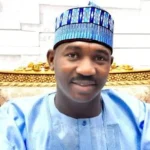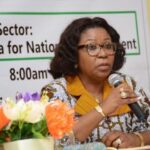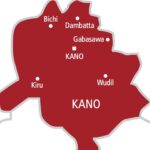It was an energetic display of music, dance, acrobatic displays, costumes and culture all centred on this year’s theme, Carnival of Reconciliation.
For visitors like Anthony Elue who came to Abuja from Lagos every year to watch the cultural extravaganza, it was another brilliant outing of colours and vibrant displays of culture from across Nigeria. “When I come here, I come strictly to enjoy myself and revive the pride I feel for my fatherland. It is always an overwhelming experience for me to watch the dances, masquerades and particularly the durbar. That just takes my breath away. This year’s performance at least made up for last year’s absence of it.”
It was the same for a Ghanaian couple Ernest and Janet Duncan. “Abuja Carnival is something we have heard so much about and when we learned that a group from our country was coming to perform we decided to come and see the event. It is our first time in Abuja and we must say that it has been a wonderful opportunity to experience Nigerian culture first hand and put a picture to some of the things we have read and been told about. It has been a truly wonderful encounter with your celebration of culture and ethnicity; we will definitely be here next year.”
But Joachim Mordi saw it differently. “With all the promises from the Ministry of Culture and the Carnival Committee at the various briefings I watched them have over the news on television, I must say that it seems their words over took everything else and actualizing those promises. Logistics still was an issue. Selling the carnival as a product is not something I have seen them successfully achieve. People need to have Abuja Carnival at the back of their minds as a destination to see cultural displays not a wanna be of Brazilian, Trinidad & Tobago or Notting Hill Carnivals.
“Of all I have seen, I liked this year’s floats the most. The states obviously took time to work around the theme. I was really looking forward to seeing Nigerians here unwinding, learning more about other cultures across the nation and even schools visiting some of the events asides the children’s fiesta. But it is quite disappointing to see that even residents in Abuja are not here. The Eagle Square was literarily empty and even those who came were the usual suspects.”
A general complain was that many people like Peter Yakubu, were not aware the event had even begun or that it was happening at all. “For one who lives in the FCT even though in Mararaba”, he said, “it is a shame that the 7th edition of the Abuja Carnival still fails to pull a crowd. It still remains an event for a select few. I learned of it yesterday and decided to come and see the closing ceremony and what I even see of the arena is not encouraging. The VIP box and seats around it are the only areas occupied as you can see. The bulk of the space here is literarily empty.”
Another, Simi Lanre, said she only heard radio jingles and was looking out for adverts and posters to give more details, but didn’t find any. “Maybe there were adverts and posters posted around the city and I missed them, but I think the publicity was really poor. Also, the poor attendance maybe because of insecurity with the recurrent attacks of bombings that have besieged the FCT in recent times. But in all I have enjoyed it and especially liked the boat regatta.”
Nasarawa, the defending champions was conspicuously unnoticed this year from the beginning to the end of the festival. Reputable for putting up unquestionably excellent performances with one of the largest contingents, Nasarawa barely had a 100 participants void of their uniqueness and elegance of her traditional costumes, dances and expressions. It managed a mere third position from the cultural night. Akwa Ibom took over from her as the best overall state in the Carnival as well as first place for carnival costume, carnival performance, masquerade display and most spectacular masquerade.
Other first place winners include Niger State for best decorated boat; Rivers for best regatta performance, costume and masquerade costumes; Bauchi most decorative costume and bet durbar display; Yobe for best durbar costume; Kaduna for best interpreted carnival theme; Benue for best carnival queen, best float and children’s performance; Ondo for best display at the cultural night; Kano for best display at the traditional food fair.
 Join Daily Trust WhatsApp Community For Quick Access To News and Happenings Around You.
Join Daily Trust WhatsApp Community For Quick Access To News and Happenings Around You.

